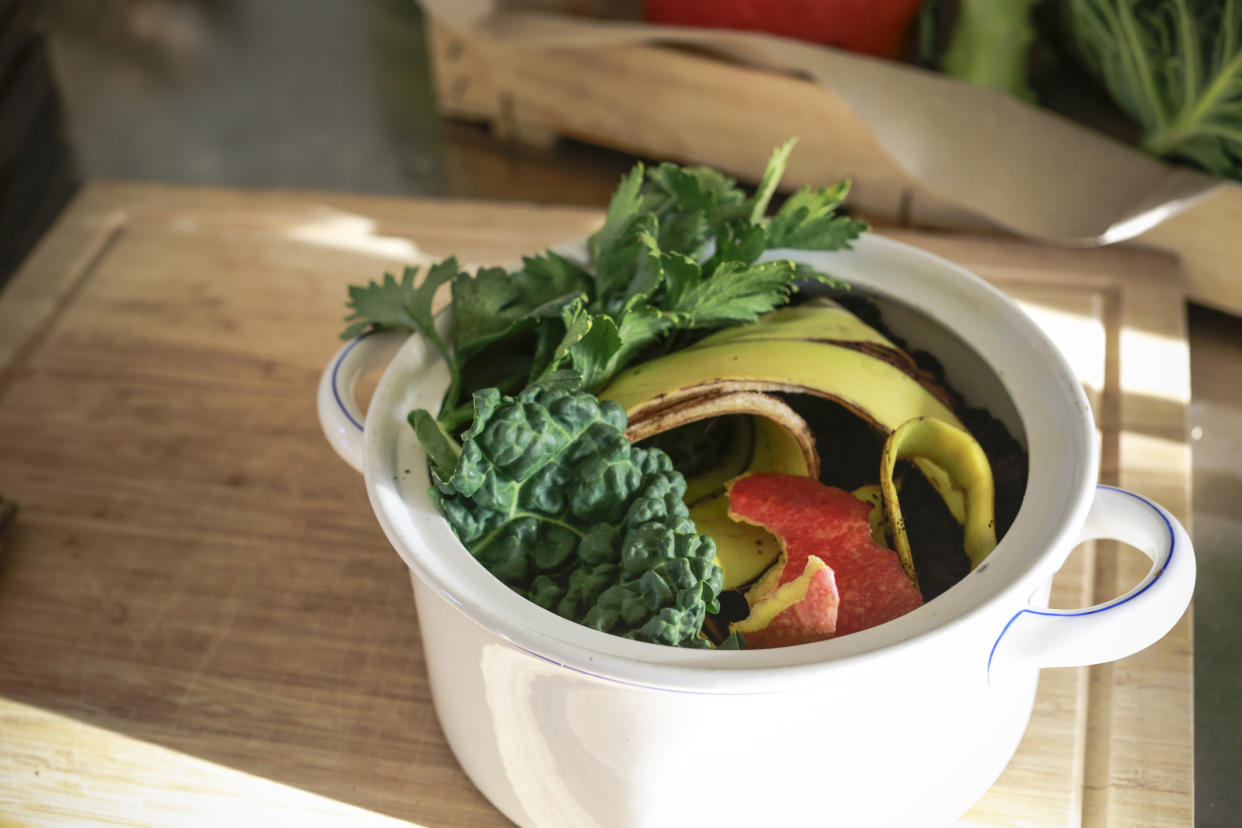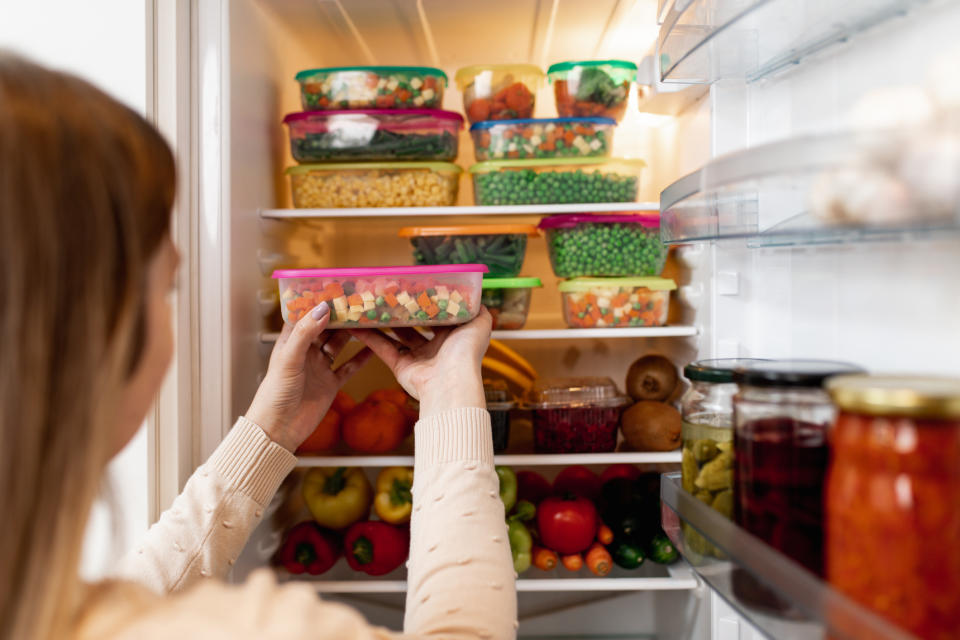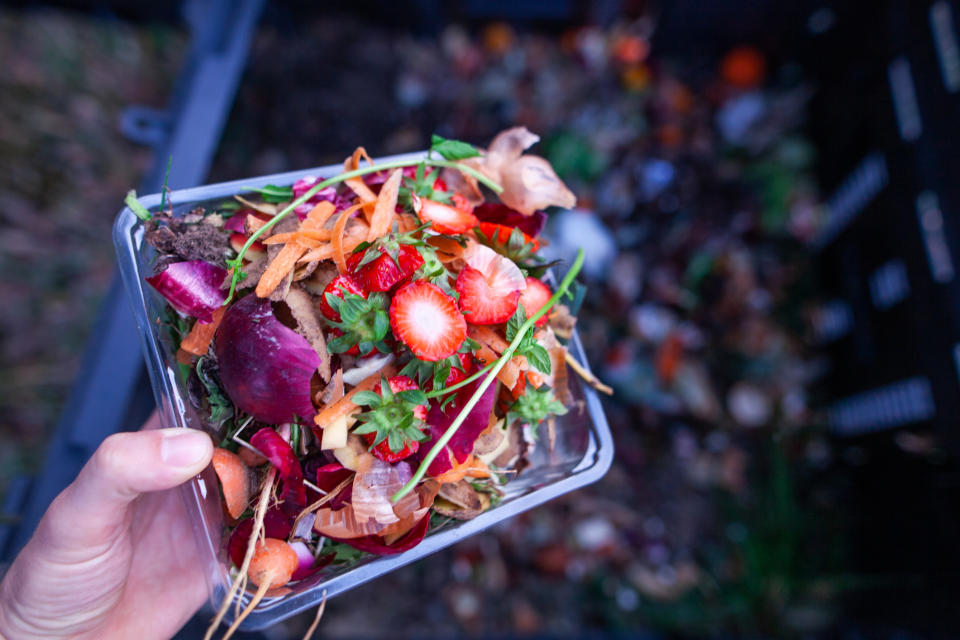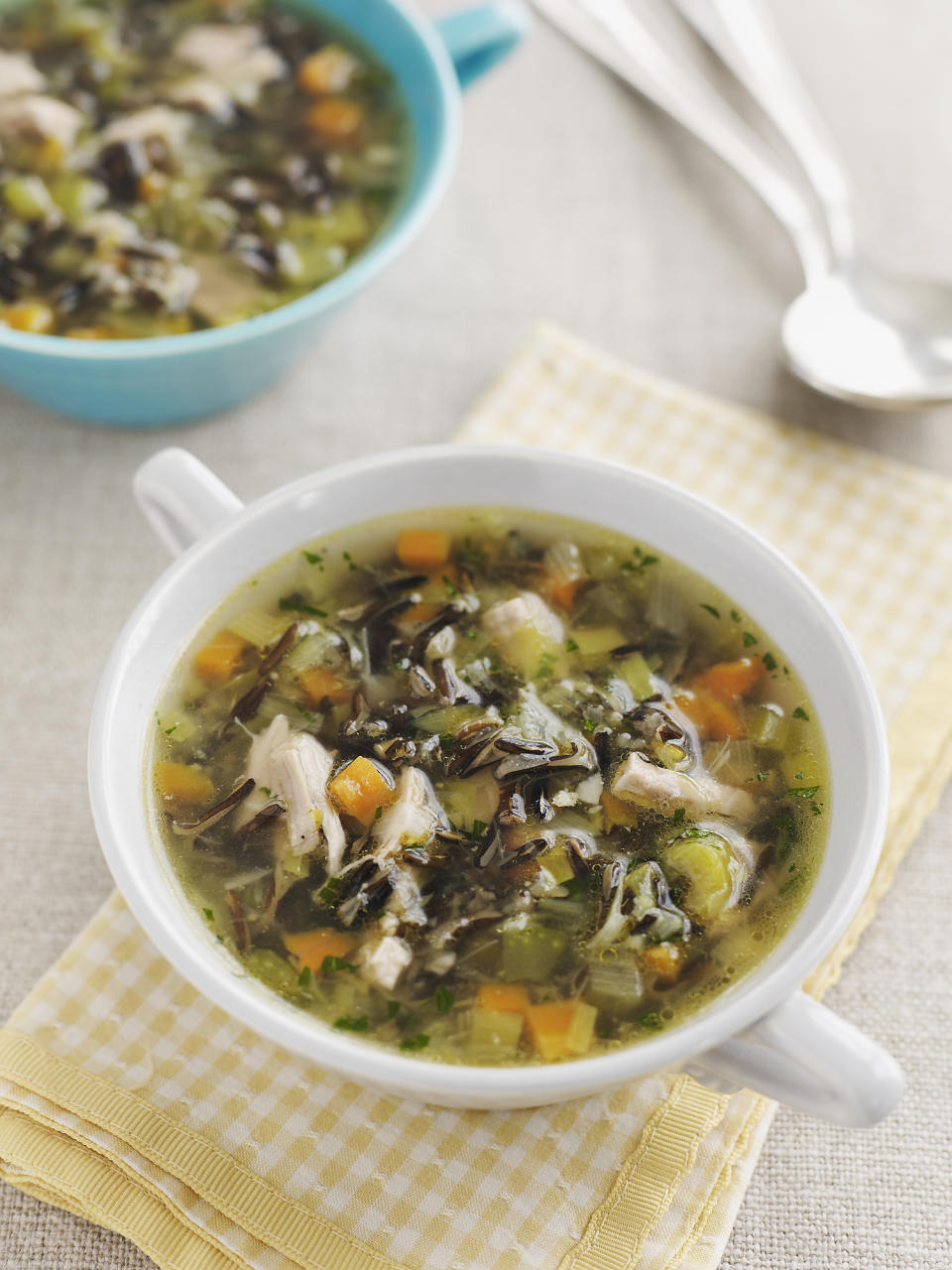How to reduce food waste during lockdown

Way back when the whole coronavirus pandemic was still unfolding and people were panic-buying all the loo roll, baked beans and pasta, there were fears that all this stockpiling might lead to a rise in food wise.
But actually it seems going into lockdown as caused some positive changes to our cooking and eating habits, which has had a knock-on effect on the amount of food we’re wasting.
According to a survey by the environmental charity Hubbub 90% of consumers polled earlier in April say their shopping and cooking habits have changed since the coronavirus lockdown started.
More than half (57%) admit they value food more now since the restrictions kicked in, with 43% enjoying it more.
In the drive to make the contents of their fridges and larders last longer, one in six are paying less attention to best-before and use-by dates, eating more out-of-date food than usual.
And with no restaurants to go out to, there’s less opportunity to let things go to waste at home.
Almost half of people (48%) said they were throwing away less food, with only 5% admitting to throwing away more.
Of those wasting less, more than half (51%) said they were planning meals more carefully (51%) and getting better at using up their leftovers.
We’re also making better use of our freezers, with about a third using it more and freezing a wider variety of foods.
While this is all positive stuff, it’s vital we keep up the good work. Currently, UK households generate 6.5 million tonnes of food waste every year of which 4.5 million (69%) is edible.
Not only does reducing food waste have a positive environmental impact, it can also give a much-needed boost to family finances.
Recent figures from the Waste and Resources Action Programme (WRAP) has revealed that the financial cost of household food waste in the UK each year is £14 billion each year, or £700 per household.
“Amongst all the trauma, uncertainty and anxiety, the Coronavirus pandemic has provided us with a unique opportunity to take a step back and consider the way we are each living our lives,” says Katie Tyndale, food waste expert and director of www.beegreenwraps.co.uk explains.
“We are forced to remain at home most of the time. Many of us are no longer earning a regular income and do not know when this will resume. There is no better time than now to think of ways to maximise what we have – benefitting not only our pockets but the planet as well.”
With that in mind, here’s some further tips to better improve our food waste habits while in lockdown.
Learn to preserve foods
Make food last longer by getting your pickle on. “Pickling carrots, cauliflower and cucumber is a great way of preserving foods and the kids will really enjoy helping you to do it,” says Kevin Quigley, commercial director at waste recycling and sustainability firm, Warrens Group.
Make a stock from scraps
Did you know you can actually make a pretty tasty stock from your scraps. “Every time you make a meal throughout the week, instead of throwing all the organic waste into the compost bin, pop it into a container in the freezer instead,” advises Emilie Vanpoperinghe, co-founder of Oddbox
“Root veg peelings, carrot tops, onion skins, mushroom stalks and herb stems alike - seriously - anything goes. At the end of the week empty everything into a heavy bottomed pan, season with salt and cover with plenty of water, maybe add a bay leaf or two and some turmeric. Then simply bring to the boil, reduce the heat, cover and simmer up for a couple of hours.”
Read more: Waste not, want not: Pro tips for making food go further
Don’t throw, regrow
Before you bin the bits of spring onions and leeks you normally cut off Vanpoperinghe has a suggestion for helping to grow your own whilst also fighting food waste.
“Next time you cook with them, hold onto approximately the last half inch of the bulb and roots and add them to a glass with enough water to submerge the roots, but leave the stem uncovered,” she says.
“Leave this on a sunny windowsill, topping up with water as needed, and changing the water entirely at least once a week. You'll be surprised by how quickly a whole new onion sprouts.”

Up the ante on storage
We may have been stocking up on food so we need to shop less, but it’s important to give consideration to how you’re storing it. Not storing your food correctly can lead to more food being wasted. “Separating foods that produce more ethylene gas from those that don’t is a great way to reduce food spoilage,” explains Quigley. “Ethylene promotes ripening in foods such as bananas, avocados and tomatoes.”
Get meal planning
While 85% of all food waste happens in the home, more often than not this simply a result of bad timing. But planning ahead can help alleviate this. “Make a list of ingredients you need for the meals you plan to cook and shop for those only,” suggests Tyndale.
Read more: IKEA releases famous meatballs recipe so we can all make them during lockdown
Start Composting
Stop, before you chuck everything in the bin, remember that putting food in your regular waste bin sends it to the landfill. “Not only does this cause harmful gases like methane to escape into the atmosphere, you're also missing an amazing opportunity to create your own natural fertiliser to feed to your house plants or use in a garden,” says Emma Ross from AO Life.

Brush up on the storage code
Sure we’re all a bit unsure of whether certain foods should be put in the fridge or not (eggs we’re looking at you!), but not knowing how or where to store certain foods can actually have a really big impact on food waste. “It's important to really understand how best to store foods,” explains Ross. She says all fruit, except bananas and pineapple – belongs in the fridge. “Keep potatoes and onions separately to keep them fresh for longer and keep bread and potatoes out of the fridge, in a dark place,” she adds.
Don’t be afraid to disregard food labels
We recently reported that experts from Which? have revealed that certain foods can be consumed long after their best-before dates, and knowing this can help reduce food waste.
There is also a difference between ‘best before’ and ‘use by’. “The former refers to quality, whilst the latter is regarding safety,” explains Ross. “Food can be eaten until the ‘use by’ date but not after.
“Don't get too hung up on ‘best before’ dates – remember, it's still ‘good’ after that date and crucially, the food will be totally safe to eat,” she adds.
Tynedale suggests looking for longer sell-by dates and plan when you are going to use each item.
Read more: No flour? Here’s the best flour alternatives

Sip a scrap soup
Ok the name might not sound that appealing but left over veg can make a super tasty soup. “Rather than throwing away old vegetables why not put them into a healthy mixed veg soup. It is so simple to make, tastes great and is healthy, too!” Tyndale says.
Wrap it, don’t scrap it
Properly wrapping food up instead of throwing it, will mean you end up tossing less in the bin. Tynedale suggests trying re-usable wraps for your leftovers such as beeswax wrapt to ensure they don’t dry out. “These allow air to pass through to the food, keeping it fresher for longer,” she explains.
Read more: Healthier snacks to reach for during coronavirus lockdown
Make the most of your freezer
Your freezer is totally your best lockdown friend. “Use your freezer to store leftovers such as spaghetti bolognese sauce in small tubs, rather than getting rid of it,” suggests Tyndale.
Learn more about the foods you can and can’t freeze here.



